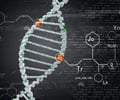The World Haemophilia Day is observed every April 17. It is an bleeding disorder which usually affects men.
To promote a global effort to establish an appropriate care and treatment for a disease “Haemophilia” that is the oldest known inherited bleeding disorder caused by a defect in the genes the World Haemophilia Day is observed every April 17. Haemophilia is an incurable genetic disorder that is characterised by a deficiency of the coagulation factor and by mucosal bleeding. It usually affects males.
India has some 1,00,000 patients suffering from Haemophilia, experts say. Even as the country focuses on more glamorous diseases, haemophilia, a little known blood disorder, is turning out to be a silent killer with over 50,000 people affected.People suffering from haemophilia lack certain proteins in their blood because of which their blood doesn’t clot and their wounds don’t heal. Ditipriya Ghosh, an official with the Haemophilia Federation of India (HFI) explains that the disease might affect anyone irrespective of social group. According to him, nearly 800 to 1,000 people with haemophilia (PWH) are registered with HFI every year.
He explains that haemophilia normally passes on at birth from an affected father to daughter, who then becomes a carrier of the haemophilia gene having every possibility of passing the defective gene on to her children. He further explains that if these children who are affected with haemophilia are not treated it might lead to disability and possible death. He stated that the disease is not curable, but it can be managed with proper knowledge and treatment. Explaining that the best way to reduce the threat of haemophilia is through awareness and provision of a life saving drug AHF (Anti Haemophilic Factor), Ranjit Mukerje, the Executive Director Haemophilia Federation (India), said that at times especially during internal bleeding, it would be necessary to take a minimum of 1,000 units of anti-haemophiliac factor, which is a life-saving drug. And they further explain that the AHF is not manufactured in India and has to be imported thereby making treatment extremely costly and impossible at times for a middle class Indian family.
Haemophiliacs, who cannot afford Rs 6,000-Rs 10,000 a month to buy the clotting factor, would need to have regular blood transfusions. But the greatest risk is that these transfusions can expose them to deadly diseases like HIV/AIDS or Hepatitis A or C. This is sadly the case of one patient, Vineet Oberoi, contracted the HIV/AIDS virus during a routine blood transfusion.
Explaining that both his brother and he were both haemophiliacs. His brother died of AIDS a few years ago, while he was diagnosed with AIDS last year. He explained that he was diagnosed with haemophilia in 1975 and received treatment in an army hospital in Delhi cantonment. Later he was detected HIV positive in 1989, he claims that it was due to the blood transfusion that he and his brother became HIV positive.
Haemophilia may be a rare disorder but as it has such intense health implications it needs for a more than a drastic step to raise awareness by the government and health officials.
Advertisement







